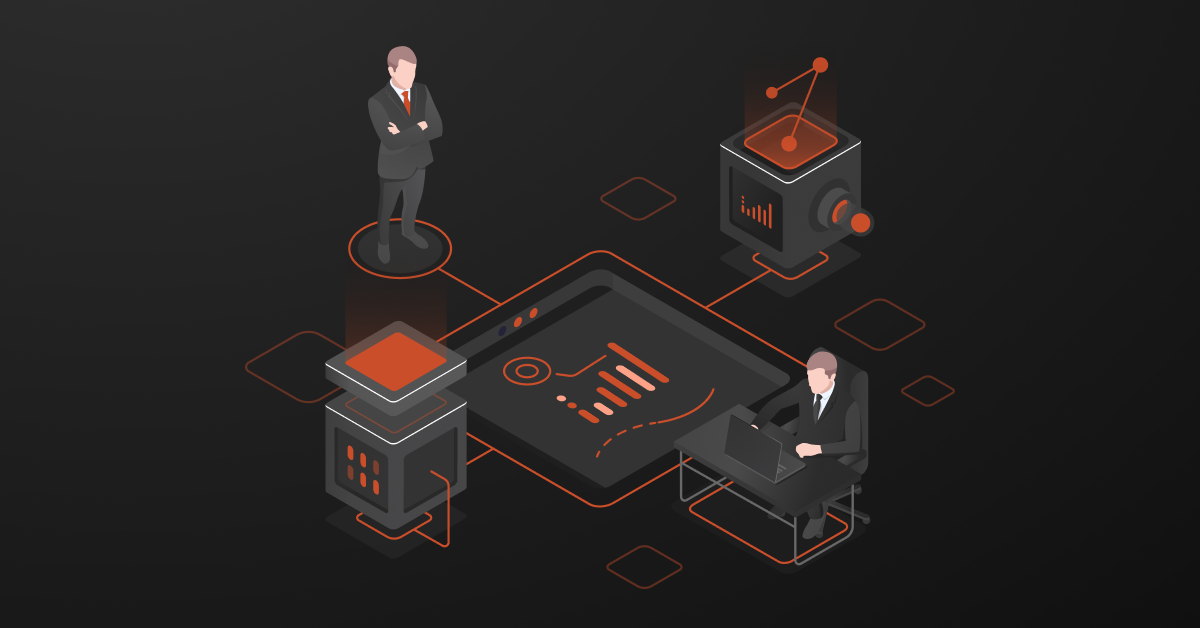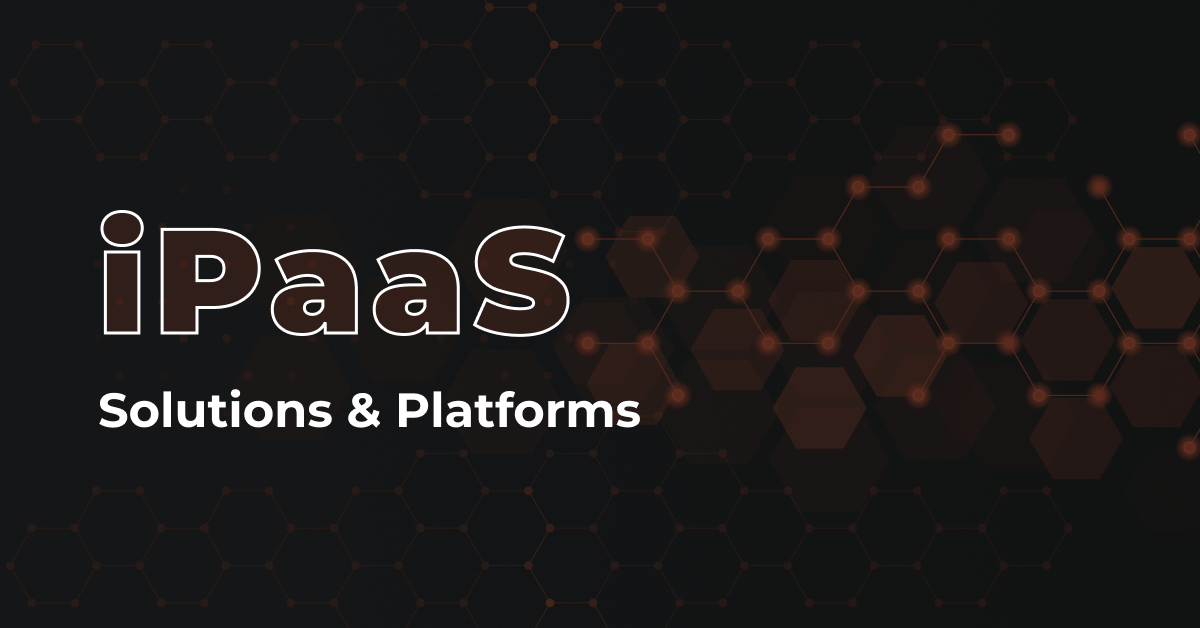According to Gartner Reports, “In 2019, there are 14.2 billion connected things in use. By 2021, it is estimated that there will be 25 billion connected things, and this number is expected to rise to 25 billion in the next year”. With the Internet predominantly taking over every aspect of personal, commercial and enterprise-level transactions, it is important to leverage the plethora of assets that cloud technology has to offer.
Gone are the days when bulky computers and large server rooms were needed to maintain and manage vast gigs of data. Now all that is needed is a device with an Internet connection to access data effortlessly in real-time and also witness scalability when the size of your data grows multiple folds. Being a low-cost alternative to its counterparts, cloud ERP solutions promise simplicity, security, speed, and diversified collaboration.
Contents
ERP – A Business Perspective
 “The data created after 2016 constitutes about 90% of the entire data created on the Internet.”
“The data created after 2016 constitutes about 90% of the entire data created on the Internet.”
This goes to show that in the near future, the volume of data processed will be on the constant rise making the need for an ERP solution inevitable. ERP (Enterprise Resource Planning) is the single system that integrates all essential functions of an organization such as Order Management, Human Resources, CRM and Accounting, thereby streamlining data to provide accurate analytics and reports. In simple terms, it lets all the connected applications of an organization to talk to each other and successfully exchange data to help overall performance management and data digitization.
Cloud ERP Solutions – How does it work?
 ERP software is used by most companies to organize, consolidate and manage information that is spread across multiple departments in an organization. Traditional ERP often requires extensive and expensive server infrastructure, along with the dependency on high-end security measures to successfully carry out its functions. Cloud ERP software, on the other hand, relies entirely on the cloud to implement its services. Cloud ERP solutions provide the same end-goals of a traditional ERP, including customizable software and reports. Cloud ERP software simply means that a business can access an ERP vendor’s servers using a web browser i.e., SaaS (Software as a Service).
ERP software is used by most companies to organize, consolidate and manage information that is spread across multiple departments in an organization. Traditional ERP often requires extensive and expensive server infrastructure, along with the dependency on high-end security measures to successfully carry out its functions. Cloud ERP software, on the other hand, relies entirely on the cloud to implement its services. Cloud ERP solutions provide the same end-goals of a traditional ERP, including customizable software and reports. Cloud ERP software simply means that a business can access an ERP vendor’s servers using a web browser i.e., SaaS (Software as a Service).
Cloud ERP focusses on combining an organization’s multiple departments along with user functions while hosting the entire service on the cloud. This ensures seamless workflow amongst all business divisions thereby building a centralized system for technology, personnel and, business. The overall performance of the system is highly improved by using a Cloud ERP Software since all the backend services of the ERP are handled by the vendor while you take care of your core business. For example, if there is a sudden increase in the number of transactions for your product, the cloud ERP will automatically adjust itself to handle this spike and provide uninterrupted service without compromising any functionality.
Advantages of Cloud ERP
-
Cost
Cloud ERP solutions do not require on-premise hardware or software ERP configuration, thus eliminating any installation, maintenance and/or hidden costs. Operating costs or subscription costs might add up over time but the initial installation costs are highly reduced along with the cost of hiring a technician to take care of the ERP system.
-
Implementation
It is much faster to implement a cloud ERP system than an on-premise ERP. Other implementation benefits include reduced IT effort and reduced downtime during upgrades.
-
Scalability
Since the whole cloud ERP setup is based on the web, data integration is faster, scalable and more consolidated. Most of the enterprise-level ERP software allows for scalability, that is, being able to add multiple systems to the same ERP software.
-
Customer Support
Cloud ERP provides customer support throughout the day. This promises solutions to issues in no time.
-
Customization
ERP solutions for an organization might have to be customized as and when requirements change. In the case of cloud ERP solutions, any customization is handled by the ERP vendor.
-
On the go
There is no actual dependency on an office set up to access the cloud ERP system. You or your employees can literally be anywhere and be productive giving you the necessary insights to proceed further.
-
24 x 7 access
Every employee of the organization can access every single detail that is required to carry out the business at any point in the day. Order management, finances, customer support, inventory updates can all be done round the clock.
-
Security
Since working on the go with 24×7 access is the most notable advantage of a cloud ERP system, security has to be top-notch. And with Cloud ERP, you are not required to maintain any documents or spreadsheets in your local database. Everything is maintained in a secure database. Cloud ERPs are usually equipped with a firewall that protects any data that enters or leaves the system. Also, data encryption and data backup are automatically provided thus safeguarding information.
-
Maintenance
Regular maintenance of the ERP software is usually maintained on the cloud, and automatically. This frees up the time of your IT resources who can use their time effectively on the actual business.
-
Up to date software
Updates to software and hardware are much faster since they are maintained by the vendor whose core business is to maintain the cloud ERP system. This enhances the system as a whole along with its functionalities.
-
Real-time analytics
One of the biggest advantages of cloud ERP is being able to see reports and results as and when they are available. This ensures data relevance and also up-to-date information. This helps a business be more productive with optimized performance.
-
Disaster Recovery
With the entire data being on the cloud, there is no data loss during a disaster. Restoring services after downtime is also taken care of by the cloud ERP system effectively.
Cloud ERP System Case Studies
AccuWeather uses Microsoft Dynamics

AccuWeather is the leading web and mobile application that provides up-to-date information about weather and related factors all over the world. The forecasts are given by the minute to over a billion people and to enable this successfully, AccuWeather uses the Cloud ERP solution of Microsoft Dynamics.
Globally AccuWeather is hit with 17 billion API requests by people waiting to make important decisions based on the weather. This heavy traffic is efficiently handled by Microsoft Dynamics Cloud ERP software. Microsoft Dynamics offers customized solutions to AccuWeather and gives top-notch results thus ensuring that AccuWeather runs its core business without a glitch.
Lucky Brand uses Netsuite

Lucky Brand, a leading manufacturer of jeans and other apparel implements Netsuite to take care of all its business processes which include financial management, inventory updates, payments and transactions, and international compliances. The Cloud ERP solution provides flexible and scalable solutions while taking care of both B2B and B2C operations for this premium denim brand. Netsuite ERP offers the following benefits to Lucky Brand:
- Single source of information
- 100 percent cloud competent
- Real-time analytics
- Scope to expand and grow into new markets
Dakota Red Corporation uses Acumatica

Dakota Red is the holding company for a large assortment of building products. They use Acumatica’s Cloud ERP software mainly due to its unlimited user pricing, ability to integrate with third-party applications and multiple entity processing. Now Dakota Red has better visibility to its inventory, compatible unit conversions, and up to date reports, all made possible by Acumatica’s Cloud ERP solution.
Solutions:
- Acumatica Manufacturing Edition
- Acumatica Financial Management
- Acumatica Distribution Management
- Acumatica Intercompany Module
- Acumatica Fixed Assets
- AcuCharge Credit Card Interface
- Microsoft Power BI
“We went from 10 users in our old system to 70 users now, and we don’t have to worry about if somebody is only going to be in the system for 15 minutes a day. We can get them access to Acumatica at no additional cost, so they can enter the work in real-time.” says Matt Stoner, CFO, Dakota Red Corporation
Cloud ERP Integration
Data consistency is a key factor when your business is running multiple departments. So integrating front-end and back-end systems in one centralized setup give better visibility at all stages of a business process. Integrating a Cloud ERP system with a company’s existing eCommerce or CRM system can make business operations more productive with increased customer satisfaction.
-
Cloud ERP Integration with eCommerce
With increased online transactions by the minute, account and inventory management is better maintained by integrating an eCommerce system with a Cloud ERP setup. A Cloud ERP Integration guarantees:
-
- Reduced error due to no manual intervention
- Up to date Inventory synchronization
- Product and price management
- Scalability to add multiple stores
- Handling spiked up traffic to the eCommerce website
-
Cloud ERP Integration with CRM
A CRM system handles in and out information about all the customers a business has. From sales to analyzing user behavior to customer service, CRM offers a streamlined solution to meet the ever-changing business demands. In order to meet such demands, a Cloud ERP integration becomes absolutely necessary. Some advantages of Cloud ERP integration with a CRM are:
-
- One database for all your customer accounts
- Easier to collaborate customer details among departments
- Easier predictability of customer actions
- No duplicate customer details
- 24×7 and on the go access to customer information
DCKAP Integrator – An enterprise Cloud ERP Integration tool
DCKAP Integrator is a stand-alone integration platform that provides data synchronization between CRM, ERP and eCommerce systems. By integrating a Cloud ERP system with DCKAP Integrator, an organization’s business needs are entirely fulfilled. Data centralization, visually being able to access your workflow, analytics and metrics that improve business decisions, customizable integrations and accurate data synchronization are just the tips of the iceberg. DCKAP Integrator promises end-to-end integration deployment and maintenance of data while you take care of your core business.
References
- https://www.netsuite.com/portal/company/pressreleases/01-14-16a.shtml
- https://www.acumatica.com/blog/global-beauty-care-acumatica/
- https://www.epicor.com/en-in/resource-center/articles/benefits-of-cloud/
- https://www.oracle.com/applications/erp/
- https://www.acumatica.com/what-is-cloud-erp-software/
- https://www2.deloitte.com/us/en/pages/risk/articles/cloud-erp-implementation-for-finance.html
- https://erpsoftwareblog.com/cloud/2017/02/accuweather-uses-microsoft-dynamics-365-give-life-saving-information-video/
- https://www.computimesoftware.com/enterprise-resource-planning/advantages-cloud-erp/
- https://businesstown.com/7-key-benefits-cloud-based-erp-systems-bring-online-businesses/




